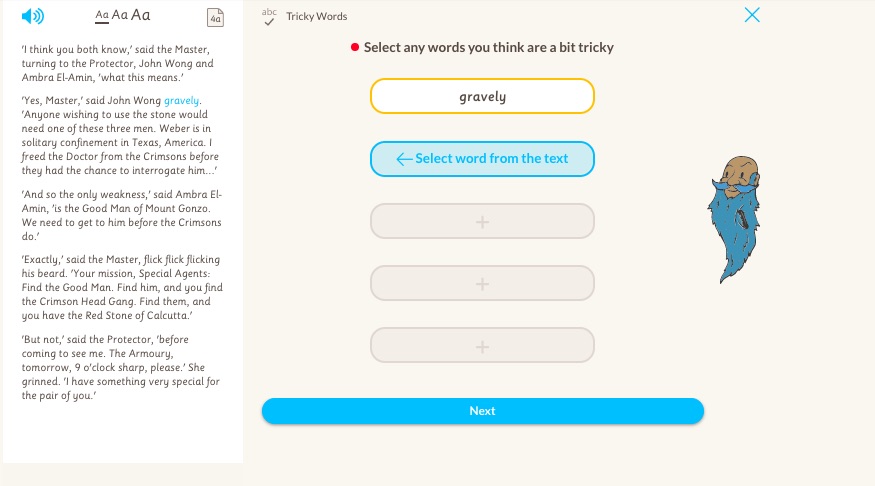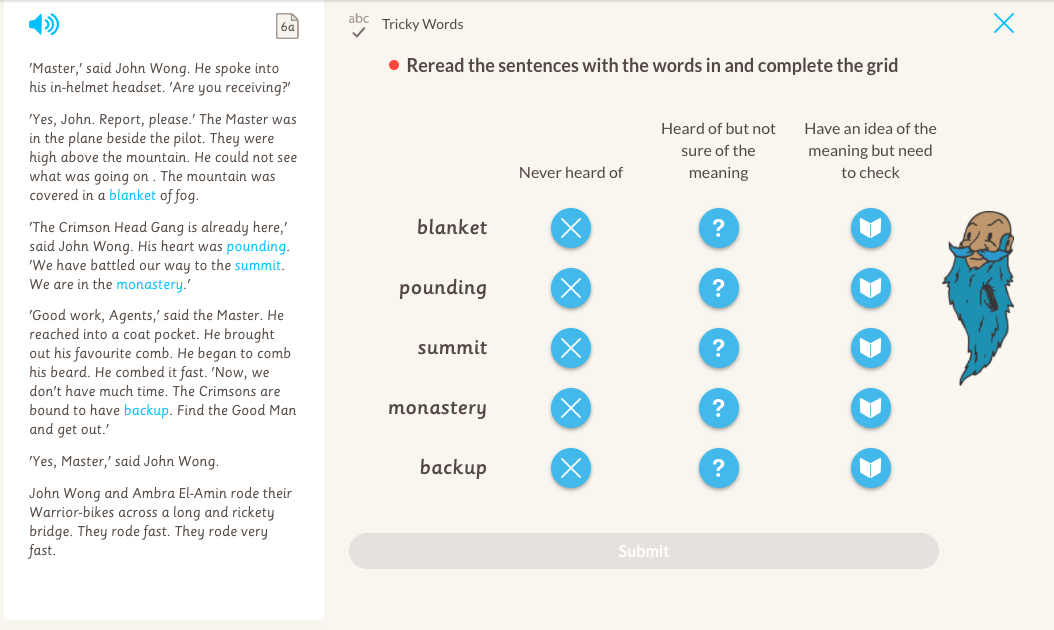
Word Check
The third Mega Skill we’ll be exploring over the next few blogposts is what we called Word Check, which concentrates on vocabulary development. Word Check teaches metacognitive skills that gives learners the tools to question things they don't understand, rather than skipping over unknown or complicated words. The mini-skills that make up Word Check empower learners to approach and clarify meaning so that they may fully understand a text. In this first article, we'll be concentrating on Word Pairs.
One of the barriers to good comprehension is insufficient word recognition skills. The National Reading Panel conducted a piece of research looking into the key factors in developing comprehension Report of the National Reading Panel. One of the most important factors was ‘learning about words - good vocabulary development’.
“A reader who encounters a strange word in print can decode the word to speech. If it is in the reader’s oral vocabulary, the reader will be able to understand it. If the word is not in the reader’s oral vocabulary, the reader will have to determine the meaning by other means, if possible. Consequently, the larger the reader’s vocabulary (either oral or print), the easier it is to make sense of the text.”
What are Tricky Words?
Tricky Words disrupt the flow of our reading. Sometimes the word may vaguely ring a bell, and we can guess the meaning based on the context. Sometimes we have never seen the word before, or anything like it. And we can’t make sense of the sentence. What do we do then?
Spotting Tricky Words is the first stop in the Word Check Mega-Skill. With the Tricky Words mini-skill, learners read through the text and select up to five words which are unfamiliar. The mini-skill is introduced as such, “Remember we are looking for words we are not too sure about. New words or those words that look a bit complicated. Re read the story again, carefully, whenever you come across a word you’re not sure of, select it by clicking on it, and not ignoring it.”

Being able to clarify our understanding is important in improving comprehension, identifying which words or phrases we are unsure of, and seeking out information in order to clarify the meaning. Once learners have selected their Tricky Words, the words will appear on the screen in a grid format, where the learner can clarify their understanding of the word. They can select if the word is something they have ‘never heard of’, ‘heard of but not sure of the meaning’, or ‘have an idea of the meaning but need to check.’

Learners are encouraged to think about each word, reread the sentence it is found in, think again, then make a choice to complete the grid, selecting one of the three options.
In completing this mini-skill learners are activating their prior knowledge, having a think about whether or not they recognize the Tricky Word, have they seen it somewhere before? They are developing the ability to monitor their own understanding – to what level is this word unfamiliar?
Tricky Words also trains learners in scanning a text and picking out words quickly. Many struggling readers simply ran out of time in their SATs – this was often due to an inability to scan effectively. The more learners practise, the more effective their scanning capabilities will be.
Going through this process develops learners’ independence in reading and making meaning. During the discussion time with the supervisor and the rest of the group, learners can delve deeper into the meaning of the words. It’s a great opportunity for vocabulary development.
What do you think?
We'd love to hear your thoughts about Tricky Words as a comprehension strategy, and ways that you've integrated this practice into your classroom. Have you seen anything special?
The ReadingWise Demo
Short, friendly and informative - you might like to arrange a demo with our team at a time to suit you.So far we've reached many thousands of learners and would love to explore working with you if it might help more children read.








